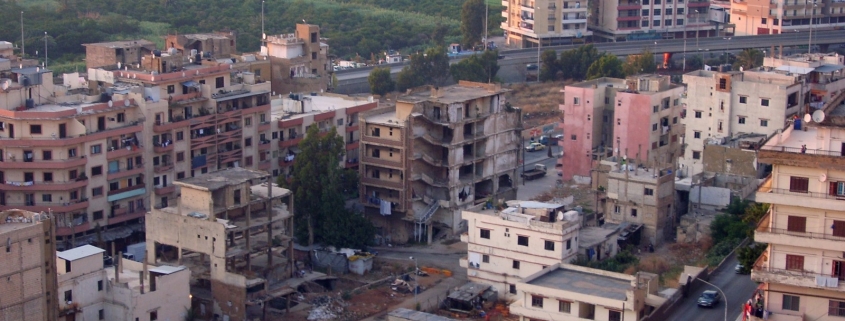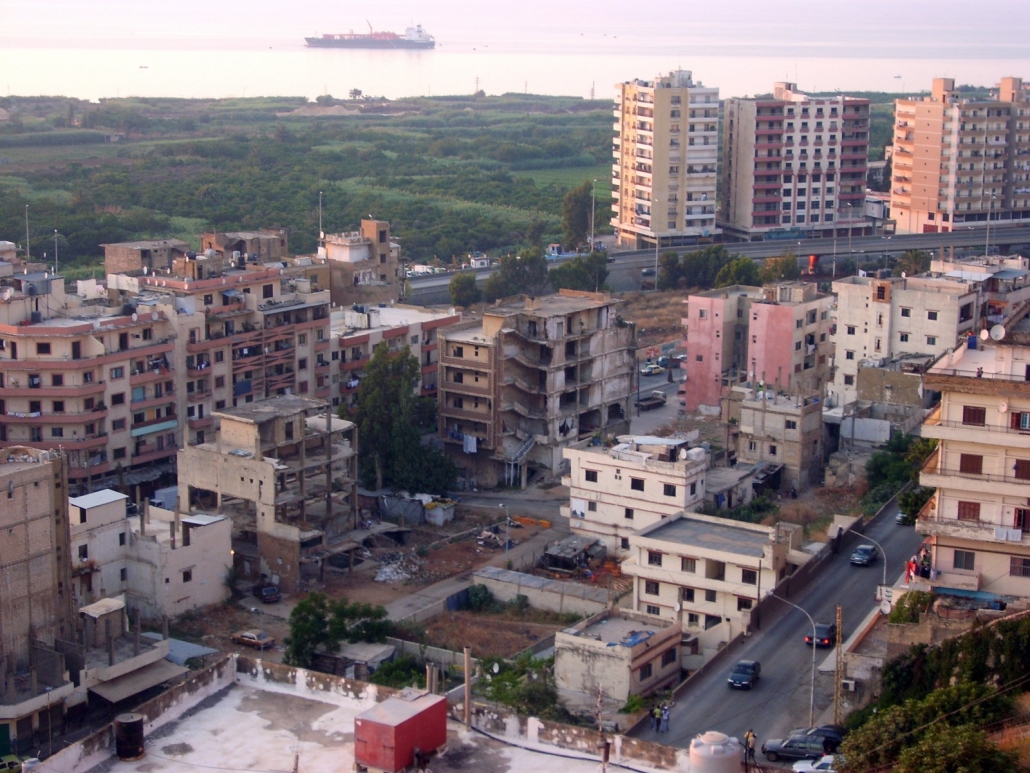HotSpots H2O: Water Cuts for Millions in Tripoli as Libya Coronavirus Caseload Rises
Buildings damaged during the Lebanese Civil War, Bab al-Tabbaneh, Tripoli. Photo courtesy of Wikimedia Commons.
Unrelenting conflict is hindering Libya’s efforts to combat the new coronavirus.
In Tripoli, the country’s largest city and capital, the situation has been especially dire over the past week, after an attack on a water pumping station cut supply for more than two million people.
The attack on Tripoli’s water supply was perpetrated by an armed group as leverage for the release of captured family members, according to Yacoub El Hillo, the United Nations humanitarian coordinator.
Hillo described the disruption as “particularly reprehensible” amid the coronavirus pandemic, and is calling for the water supply to be restored immediately.
The water supply in Tripoli, as well as other parts of Libya, has been repeatedly targeted during the country’s six-year civil war. Disruptions include the forced shutdown of a desalination plant in the coastal city of Derna, as well as repeated damages to the Great Man-Made River, a major water supply pipeline.
Intense fighting over the past month — including the bombing of a hospital, which the United Nations decried as “a clear violation of international humanitarian law” — has fractured basic infrastructure throughout Tripoli. Electrical supply has also been erratic during the past week.
Those disruptions could hardly come at a worse time. Leaders, aid groups, and residents fear that heavy fighting will derail efforts to stop the spread of Covid-19, the disease caused by the coronavirus. The country had 25 confirmed cases and one death as of Sunday evening.
“If Libya is to have any chance against COVID-19, the ongoing conflict must come to an immediate halt,” Hillo said in a statement last week. The country has enacted several protective measures, including curfews and a 19-hour-per-day lockdown in Tripoli, but many fear the efforts will not be enough if fighting continues.
Countrywide, Hillo says that 27 healthcare facilities have been damaged since mid-March, with 14 closing. The recent damage follows years of destruction to Libya’s healthcare system.
“The situation is miserable,” Aynoor, an English teacher in Tripoli, told Reuters. “Heavy fighting, coronavirus, and now we have electricity and water cuts.”
Kayla Ritter is a recent graduate of Michigan State University, where she studied International Relations and Teaching English to Speakers of Other Languages. She is currently based in Manton, Michigan. Kayla enjoys running, writing, and traveling. Contact Kayla Ritter







Leave a Reply
Want to join the discussion?Feel free to contribute!